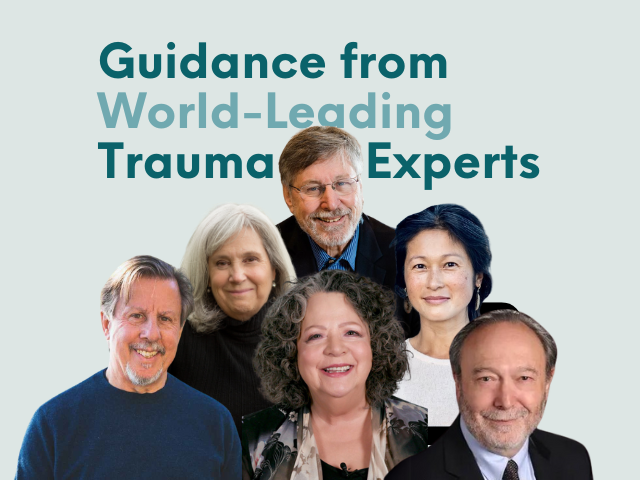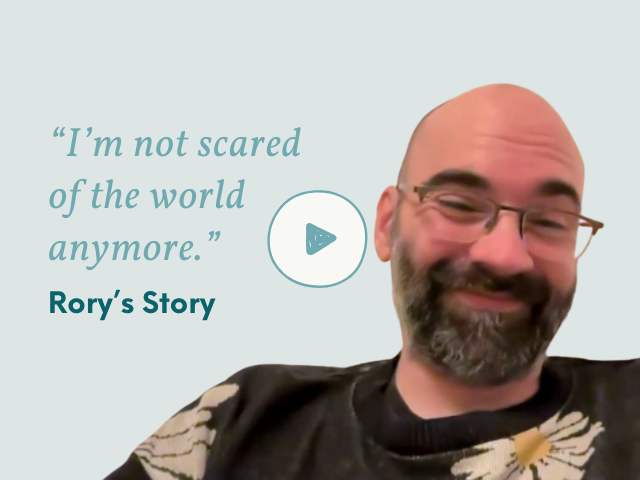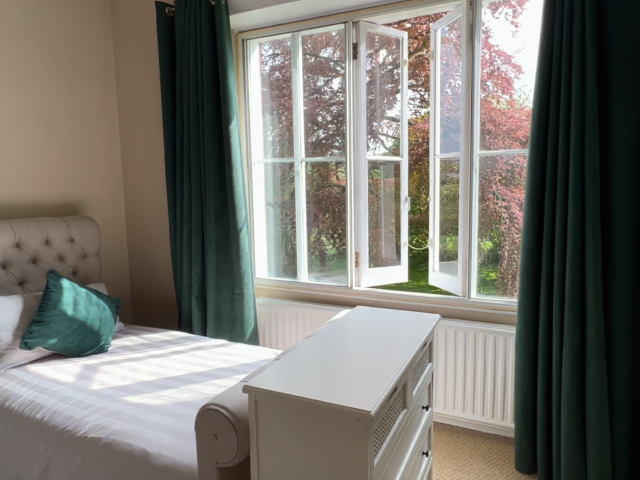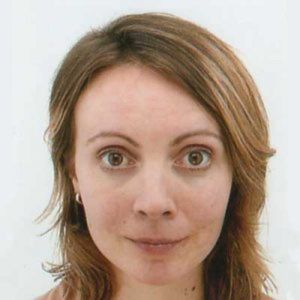








Khiron Clinics
Verified Center
This provider's information has been quality-checked by Recovery.com's Research Team for accuracy and completeness, including center verification through appropriate third-party organizations.
Treatment Focus
This center treats mental health conditions and co-occurring substance use. You receive collaborative, individualized treatment that addresses both issues for whole-person healing.
Primary Level of Care
Offering intensive care with 24/7 monitoring, residential treatment is typically 30 days and can cover multiple levels of care. Length can range from 14 to 90 days typically.
Treatment Focus
This center treats mental health conditions and co-occurring substance use. You receive collaborative, individualized treatment that addresses both issues for whole-person healing.
Primary Level of Care
Offering intensive care with 24/7 monitoring, residential treatment is typically 30 days and can cover multiple levels of care. Length can range from 14 to 90 days typically.
Provider's Policy
We currently accept insurance on a case-by-case basis. We've worked with Bupa Global, AXA, WPA, and Cigna.
Khiron Clinics
Khiron Clinics
About Khiron Clinics
Khiron Clinics’ residential programme helps individuals experiencing mental health crises and addiction by addressing the trauma often underlying these conditions. Using groundbreaking, nervous system-based therapies, their clinicians are informed, trained, and supervised by the world’s leading trauma experts. Khiron Clinics aims to be the final destination on their clients’ road to recovery, offering hope to clients who’ve been let down by previous treatments for substance use disorders, anxiety, depression, trauma, and other primary mental health conditions.
Receive Specialised Trauma Care
Khiron Clinics follows a 3-phase approach to treating trauma and mental health challenges rooted in early or unresolved trauma. First, ‘Stabilisation’ focuses on understanding oneself, reducing symptoms, and learning about trauma and self-regulation. Next, ‘Trauma Processing’ builds safety in the body and mind, helping clients recognise triggers, manage emotions, and make mindful choices. Finally, ‘Integration’ helps clients take their newfound regulation, self-awareness, and knowledge into daily life by applying the skills developed in treatment.
Find Deep Healing in Mind-Body Practices
Khiron Clinics uses Polyvagal Theory-informed practices to create the conditions for deep healing. Drawing from a range of techniques—such as eye movement desensitisation and reprocessing (EMDR), internal family systems (IFS), and equine therapy—clients learn to connect with bodily sensations and the present moment to release trauma stuck in the body, desensitise distressing memories, reduce self-destructive behaviours, and relearn trust and connection with others.
Enjoy Quiet and Connection
Nestled in the countryside northwest of London, Khiron Clinics offers private and shared housing—from a private bungalow to communal manor living in a 24-bedroom residence. Clients enjoy nutritious meals, access to 12 acres of gardens and walking trails, a home gym, swimming pool, cold water therapy (with clinical approval), and quiet comforts like a communal computer, landline phone, and a resident cat— all designed to support rest, connection, and emotional healing.
Maintain Progress with Aftercare
To support long-term mental well-being, clients can move to Khiron’s lower-dependency residential facilities or transition to outpatient therapy through their day clinic or 1-1 sessions, either online or in-person. Follow-up support also includes 3-, 6-, and 12-month check-ins.
Chat about Funding Options
Khiron Clinics tailors plans to suit clients’ funding needs, whether they’re using private medical insurance, seeking NHS referrals, or planning to finance treatment personally or with the support of family and friends. During a telephone consultation, they can discuss a range of options, including the duration of treatment, location, and the level of care required, in addition to the price.
If detoxification is needed, trusted clinics are available to ensure clients with substance use disorders are fully prepared for the trauma therapy offered.

Highlights from the Center
Highlights
These highlights are provided by and paid for by the center.
Nature Lovers
Holistic Approach
Certified Professionals
Trauma Treatment
Center Overview
Treatment Focus
This center treats mental health conditions and co-occurring substance use. You receive collaborative, individualized treatment that addresses both issues for whole-person healing.

Khiron Clinics
Insurance Accepted
Cash Pay Rates
Estimated Cash Pay Rate
Center pricing can vary based on program and length of stay. Contact the center for more information. Recovery.com strives for price transparency so you can make an informed decision.




Recovery.com Verified Listing
Recovery.com verified that the name, location, contact information and license to operate for this treatment provider are valid and up-to-date.

CQC Rating: Good
Recovery.com is an independent, third-party mental health resource. Verification does not imply endorsement and does not guarantee the quality of treatment services.
Meet Your Care Team

Amber Knights
Clinical Director - Residential
Masters Degree in Gestalt Psychotherapy

Angela Bent
Intake Director

Anja Frykegaard
Psychotherapist
MA in Psychodynamic Psychotherapy

Benjamin Fry
Founder and Chair
Accredited by the BACP

Claire Ewart Smith
Clinical Director - Outpatients
Master’s degree in Integrative Psychotherapy and Counselling Psychology, BACP Accredited

Emily Andrews
Therapist

Dr Haneyeh Belyani
Therapist

Humphrey Bacchus
Nutritionist
Post Graduate Diplomas in Clinical and Personalised nutrition

Janie Rymaszewska
Psychotherapist
MCAT

Lillie Perree
Psychotherapist

Lorena Balbinot
Psychotherapist

Luciana Fondaras
Psychotherapist
Masters Degree in Jungian Psychodynamic Psychology

Lucy Allen
Psychotherapist
Level 2 in IFS and Bodynamics

Mark Kelly
Psychotherapist

Prahlad Ilex Galbiati
Therapy Director
Body-Psychotherapist, a Biodynamic Craniosacral Therapist, and a Somatic Experiencing Practitioner

Rachel James
Yoga Teacher

Romana Akram
Managing Director
MBA

Sarah Paton Briggs
Psychotherapist
CCTP Level 2

Sasha Watson
Psychotherapist
MA in Dance Movement Psychotherapy

Steph Bent
Trainer and Life Coach

Tom Gold-Blyth
Tai Chi Teacher

Tracey-Lee Austin
Service Supervisor
Doctoral degree in Clinical Psychology

Tracy Ellis
Psychotherapist
Your Care Options
Specializations
Personality Disorders
Personality disorders destabilize the way a person thinks, feels, and behaves. If untreated, they can undermine relationships and lead to severe distress.
Anxiety
Anxiety is a common mental health condition that can include excessive worry, panic attacks, physical tension, and increased blood pressure.
Bipolar
This mental health condition is characterized by extreme mood swings between depression, mania, and remission.
Burnout
Burnout entails mental and physical exhaustion, and leads to a severe lack of fulfillment. This condition is often caused by overwork.
Depression
Symptoms of depression may include fatigue, a sense of numbness, and loss of interest in activities. This condition can range from mild to severe.
Licensed Primary Mental Health
Some primary care providers offer mental health diagnosis and treatment. This can prevent patients from developing more serious conditions.
Suicidality
With suicidality, a person fantasizes about suicide, or makes a plan to carry it out. This is a serious mental health symptom.
Trauma
Some traumatic events are so disturbing that they cause long-term mental health problems. Those ongoing issues can also be referred to as "trauma."
Who We Treat
Older Adults
Addiction and mental health treatment caters to adults 55+ and the age-specific challenges that can come with recovery, wellness, and overall happiness.
Executives
Executive treatment programs typically directly support the needs of people who manage businesses and may provide flexible schedules and office space to allow work during treatment.
LGBTQ+
Addiction and mental illnesses in the LGBTQ+ community must be treated with an affirming, safe, and relevant approach, which many centers provide.
Men and Women
Men and women attend treatment for addiction in a co-ed setting, going to therapy groups together to share experiences, struggles, and successes.
Midlife Adults
For adults ages 40+, treatment shifts to focus on the unique challenges, blocks, and risk factors of their age group, and unites peers in a similar community.
Mild Disabilities
Adults with mild physical or intellectual disabilities receive treatment catered to their specific needs in a safe and clinically supportive environment.
Treatment Services
Licensed Primary Mental Health
Some primary care providers offer mental health diagnosis and treatment. This can prevent patients from developing more serious conditions.
Residential
In a residential rehab program, patients live onsite, with access to daily treatment and 24-hour care. An average stay is 30-90 days.
Transitional Living
After rehab, some people stay in a transitional living situation before returning home. These programs offer structure, education, and community support.
Approaches
Evidence-Based
A combination of scientifically rooted therapies and treatments make up evidence-based care, defined by their measured and proven results.
Holistic
A non-medicinal, wellness-focused approach that aims to align the mind, body, and spirit for deep and lasting healing.
Personalized Treatment
The specific needs, histories, and conditions of individual patients receive personalized, highly relevant care throughout their recovery journey.
Therapeutic Community
Therapeutic communities allow patients to contribute to the success and progress of their community, through healthy behaviors or even basic chores.
Therapies
1-on-1 Counseling
Patient and therapist meet 1-on-1 to work through difficult emotions and behavioral challenges in a personal, private setting.
Meditation & Mindfulness
A practiced state of mind that brings patients to the present. It allows them to become fully aware of themselves, their feelings, and the present moment.
Play Therapy
This approach is commonly used with children. It incorporates elements of play and self-expression, like boardgames, finger painting, dolls, and blocks.
Trauma-Specific Therapy
This form of talk therapy addresses any childhood trauma at the root of a patient's current diagnosis.
Mindfulness Therapy
This ancient practice can be mental, emotional, and even spiritual. In meditation, you focus your attention on the present moment without judgement.
Attachment-Based Family Therapy
ABFT is a trauma-focused therapy that teaches you to form healthy relationships by rebuilding trust and healing attachment issues formed in childhood.
Animal Therapy
Animals can inspire trust and self-worth. In this experiential therapy, guided interactions are used to improve social skills and emotion regulation.
Conditions We Treat
Grief and Loss
Grief is a natural reaction to loss, but severe grief can interfere with your ability to function. You can get treatment for this condition.
Personality Disorders
Personality disorders destabilize the way a person thinks, feels, and behaves. If untreated, they can undermine relationships and lead to severe distress.
ADHD, ADD
ADHD is a common mental health condition caused by dopamine imbalance. Common symptoms include inattention, hyperactivitiy, and impulsivity.
Anger
Although anger itself isn't a disorder, it can get out of hand. If this feeling interferes with your relationships and daily functioning, treatment can help.
Anxiety
Anxiety is a common mental health condition that can include excessive worry, panic attacks, physical tension, and increased blood pressure.
Bipolar
This mental health condition is characterized by extreme mood swings between depression, mania, and remission.
Burnout
Burnout entails mental and physical exhaustion, and leads to a severe lack of fulfillment. This condition is often caused by overwork.
Substances We Treat
Chronic Relapse
Consistent relapse occurs repeatedly, after partial recovery from addiction. This condition requires long-term treatment.
Co-Occurring Disorders
A person with multiple mental health diagnoses, such as addiction and depression, has co-occurring disorders also called dual diagnosis.
Drug Addiction
Drug addiction is the excessive and repetitive use of substances, despite harmful consequences to a person's life, health, and relationships.
Prescription Drugs
It's possible to abuse any drug, even prescribed ones. If you crave a medication, or regularly take it more than directed, you may have an addiction.
Languages
Aftercare
Care Designed for Your Needs
Personal Amenities
Amenities
Special Considerations
Center Pets
Addiction and mental health facilities with pets allow patients to interact with friendly dogs, cats, horses, and in some cases, even dolphins.
Clients can bring their own pet(s)
For greater comfort and healing, pet-friendly treatment centers welcome dogs and animal companions to stay with their owners while they attend treatment.
Couples program
Using gentle clinical care, therapists guide patients and their partner through guided sessions to address issues and work towards lasting solutions.
Pet Friendly
For greater comfort and healing, pet-friendly treatment centers welcome dogs and animal companions to stay with their owners while they attend treatment.
Activities
Yoga
Yoga is both a physical and spiritual practice. It includes a flow of movement, breathing techniques, and meditation.
Off-Site Activities
Off-Site Amenities
Learn More About the Center
Trauma Modalities
Explore their comprehensive and cutting-edge approaches to trauma recovery.
From Breakdown to Breakthrough
Read a letter from the founder about rebuilding his life and well-being by understanding unresolved trauma.
Trauma Denial: What Is It and Why Does It Happen
Learn about this defence mechanism that hinders the healing process.
Payment and Funding
Explore the right funding to access Khiron’s world-class mental health treatment.





